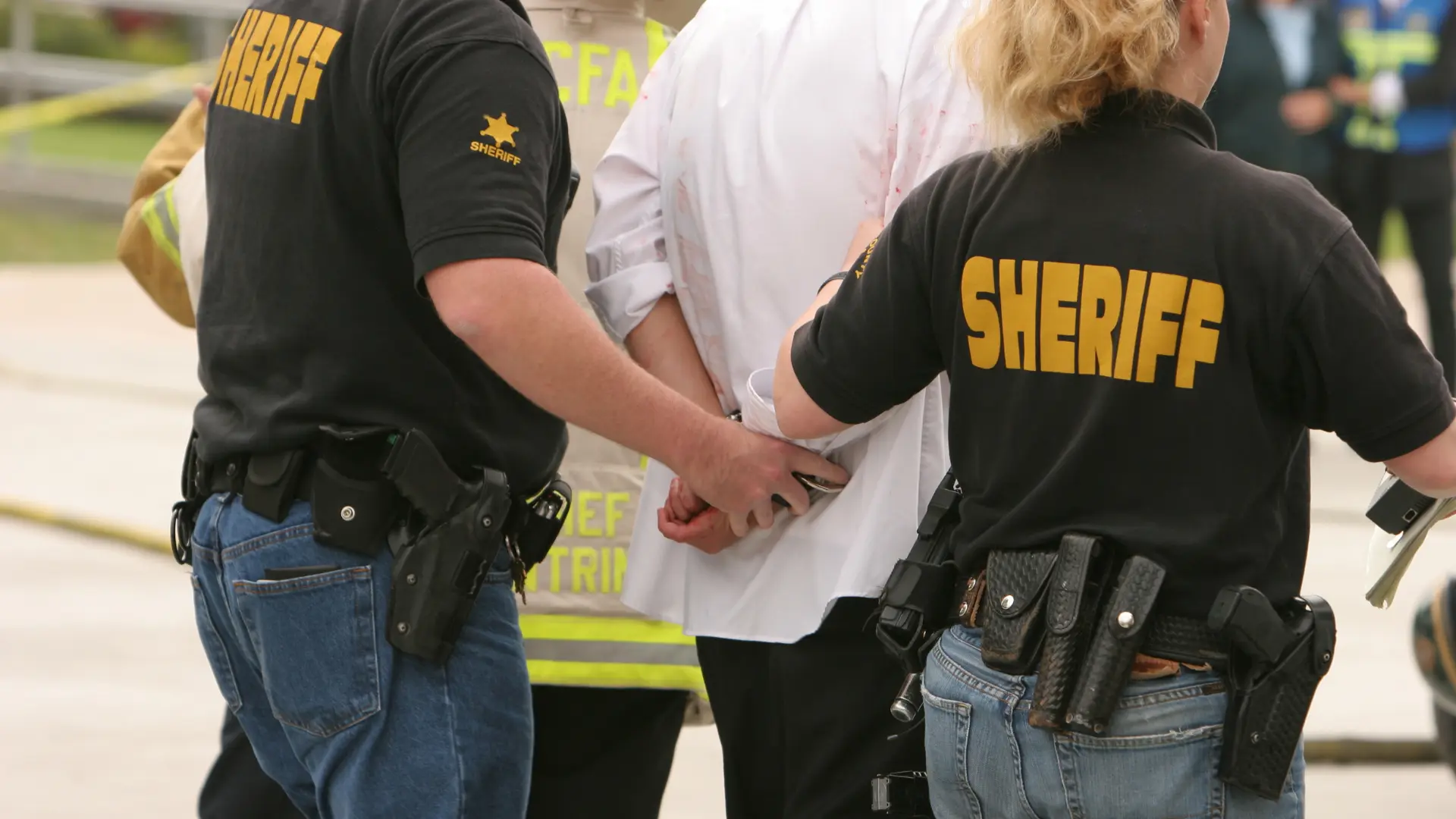
It’s normal and understandable to feel scared after a
drunk driving arrest in Texas. However, you can’t let that panic overwhelm you. Knowing what to do after DUI arrest can help you stay calm and take the proper steps to protect your future. You could undermine your defense and face harsher penalties if you’re not careful. Take a deep breath, then follow our guide to what to do after a
DWI arrest in Texas.
Stay Calm and Cooperate, But Know Your Rights
Cooperating with the authorities, within reason, can help you avoid extra charges. That said, it’s crucial to understand where reasonable cooperation ends and guarding your rights begins, especially when deciding what to do after a DUI arrest.For example, you generally have the
right to remain silent during interactions with the police or prosecutors. You must give your name and identifying information, but you don’t have to answer questions about drinking or your activities. Politely state that you choose to remain silent until you have an experienced DUI attorney. Keeping quiet protects you from making statements that the authorities could use against you.Likewise, you can refuse field sobriety tests—walking in a straight line, standing on one leg, etc.—without legal consequences. These tests are highly subjective, and attempting them can only hurt your defense. You can also refuse a roadside breathalyzer test before your arrest. However, refusing a formal chemical test once the police arrest you will trigger an automatic driver’s license suspension, which is part of what usually happens after a DUI arrest.Finally, do not argue or resist arrest, even if you believe the case is unfair. Stay respectful and avoid sudden movements.
Contact a DUI Defense Attorney Immediately
Waiting too long to hire a criminal defense attorney can severely hurt your case. In Texas, you have only 15 days to request an
ALR hearing to fight an automatic driver’s license suspension. Missing this deadline means you can’t fight the suspension, even if prosecutors later drop or reduce your charges.A skilled DUI defense lawyer knows how to act quickly to protect your rights. They can request the license hearing, review the arrest report, and gather evidence before it disappears. An attorney can also identify any mistakes the police made during their search or arrest, such as a lack of probable cause or improper testing procedures. They can use evidence of those mistakes to challenge your charges.Your lawyer can also handle negotiations with the prosecutor and work to reduce your charges or penalties when possible. They’ll advise you on every step, explain your options clearly, and help you avoid costly mistakes.
Request an ALR Hearing to Challenge License Suspension
Without quick action, you could lose your driving privileges after a DUI, even if prosecutors later dismiss your charges. That’s because Texas law allows the authorities to suspend your license while your case is pending.The way you keep your driving privileges after a DUI arrest is to have your lawyer ask for an
Administrative License Revocation hearing. You must submit your hearing request within 15 days if you refused a roadside breathalyzer or field sobriety test. You have 20 days to request an administrative hearing if you consented to these tests, but you’re usually better off refusing them to avoid giving the police additional evidence.
Understand the Charges and Possible Penalties
In Texas, the official term for drunk driving is “
Driving While Intoxicated,” or “DWI.” Under
state law, the definition of “intoxicated” includes:
- Having decreased mental or physical abilities due to alcohol or other controlled substances.
- Having a blood alcohol concentration (BAC) of 0.08 percent or higher.
A first-time DWI is usually a
Class B misdemeanor.
However, first-time offenders can face more severe charges in some circumstances, such as if they injure someone in a crash or if their BAC is 0.15 or greater. Subsequent DWI arrests will trigger additional potential penalties as well.Gather Evidence and Write Down What Happened

While you should let a lawyer handle most of the work in your case, there are ways to help them. Collecting and handing over any evidence you have from the scene can aid your attorney in their efforts. Some evidence to gather or tell your lawyer about includes:
- Any citations, booking documents, or notices you received.
- The arresting officer’s dashcam or bodycam footage.
- Eyewitness statements or contact information.
- Proof of when and what you drank, such as bar or restaurant receipts.
- Information about any medical conditions or medications affecting sobriety tests or breathalyzer results.
- GPS logs, rideshare receipts, text messages, or phone records showing your timeline that night.
Lastly, write down everything you remember about the stop and arrest while it’s fresh. The police may have made a mistake that your lawyer can use to support your defense.
Prepare for Court Dates and Follow All Legal Instructions
Take every court date seriously, and make sure to follow all instructions you receive from prosecutors or judges. Missing a hearing can lead to a warrant for your arrest and make your case much harder to fight. Stay organized, mark your calendar, and ask your lawyer about what to expect. Following the court’s rules shows responsibility and helps your attorney protect your rights
throughout the legal process.My Dallas Criminal Lawyer has extensive experience with
DWI cases in Dallas and knows how to protect and
help you with your rights at every stage. Call
214-949-4117 now or complete our
contact form for a free consultation.
 It’s normal and understandable to feel scared after a drunk driving arrest in Texas. However, you can’t let that panic overwhelm you. Knowing what to do after DUI arrest can help you stay calm and take the proper steps to protect your future. You could undermine your defense and face harsher penalties if you’re not careful. Take a deep breath, then follow our guide to what to do after a DWI arrest in Texas.
It’s normal and understandable to feel scared after a drunk driving arrest in Texas. However, you can’t let that panic overwhelm you. Knowing what to do after DUI arrest can help you stay calm and take the proper steps to protect your future. You could undermine your defense and face harsher penalties if you’re not careful. Take a deep breath, then follow our guide to what to do after a DWI arrest in Texas. While you should let a lawyer handle most of the work in your case, there are ways to help them. Collecting and handing over any evidence you have from the scene can aid your attorney in their efforts. Some evidence to gather or tell your lawyer about includes:
While you should let a lawyer handle most of the work in your case, there are ways to help them. Collecting and handing over any evidence you have from the scene can aid your attorney in their efforts. Some evidence to gather or tell your lawyer about includes:




